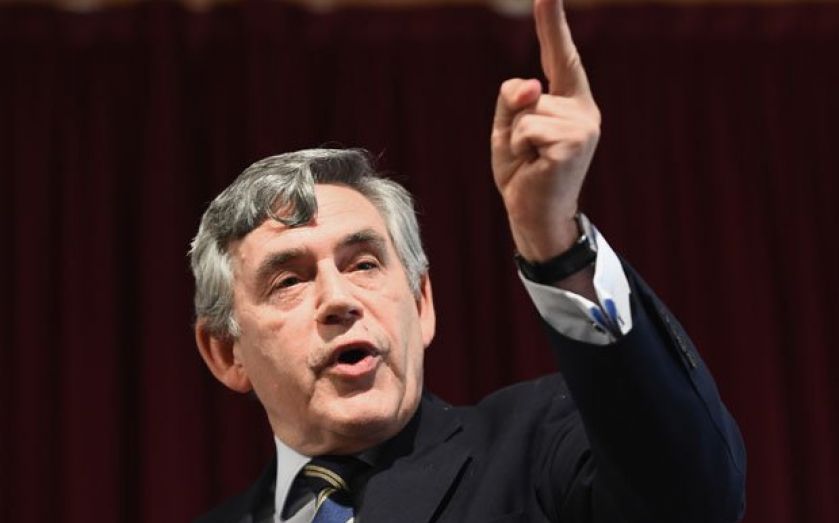Better Together finally gets it: An appeal to reason isn’t enough to save the Union

FINANCIAL markets seem to be doing a better job of making the case against Scottish independence than our politicians. Since polls were published showing the Yes campaign in the ascendancy, the slide in sterling has given everyone food for thought – and not just in Scotland.
My email has fired up with colleagues in New York and Singapore asking, “are we really just a week away from the break up of the UK?” As a proud Scot who wants to see the UK stay together, the sad answer is that it’s closer than ever.
But why have we reached this point?
The relentless negativity of the No campaign is the place to start. The initial concept of “Better Together” was a good one. The idea was to ensure the campaign wasn’t defined by “No you can’t”, but “Yes you can – have the best of both worlds”. For while negative campaigning is a key political tool, it cannot be the be-all and end-all: hope is always more powerful than fear. Yet Better Together swapped its original positive message for a miserable “No” until just a few weeks ago.
Better Together was warned about such a miscalculation. Some months ago, I and many others sat down with campaigners, including members of the UK government, and argued that Scotland needed to hear the positive, emotional case for the UK. I’m sure countless other similar meetings took place, but nothing seemed to happen. It isn’t as if the case for the Union lacks credibility.
Then came the TV debates. Alistair Darling won the first hands down. He focused on sterling: the very real fears about the currency of an independent Scotland, and the yawning holes in Alex Salmond’s plan. But in the second debate, complacency set in. Darling should have banked his first win and moved the attack onto other areas of uncertainty, while explaining the powers a new Scotland could have as part of the UK. Yet Salmond was ready with answers on sterling, and went on the attack to brutal effect. Was this not game planned?
There have been unforced errors too. A recent No TV ad, where a women debated her vote, was widely (and rightly) seen as patronising. And as most women remain sceptical of Yes even now, I still wonder why they risked the ad in the first place. Better Together’s negativity has also had an impact at the grassroots. Yes has been winning the ground war for months.
So what must happen now? Over 600,000 Scots have already voted, and timetables for Devo Plus or Devo More, which should have been set out months ago, are unlikely to change many minds. And while it’s good to see the party leaders head to Scotland together, again it looks too late.
Crucially, Yes has a simple, single message. Better Together, in the final days, must find a similar voice. There are promising signs. Last night, No aired a new broadcast, A Proud Nation, noting that “Scotland doesn’t need to be a separate nation to be a better nation.” Accompanied by images of Scots working in the shipyards, its naked appeal to emotion has been missing in the campaign thus far.
It’s vital that such a message continues. A vote for the Union is often characterised as a vote with the head, not the heart. Yet if Scotland leaves, for many of us, our hearts will be broken.
Let markets do the job of making the arguments of the head. The job of politicians is to reignite a passion for Scotland and the UK in Scottish hearts.